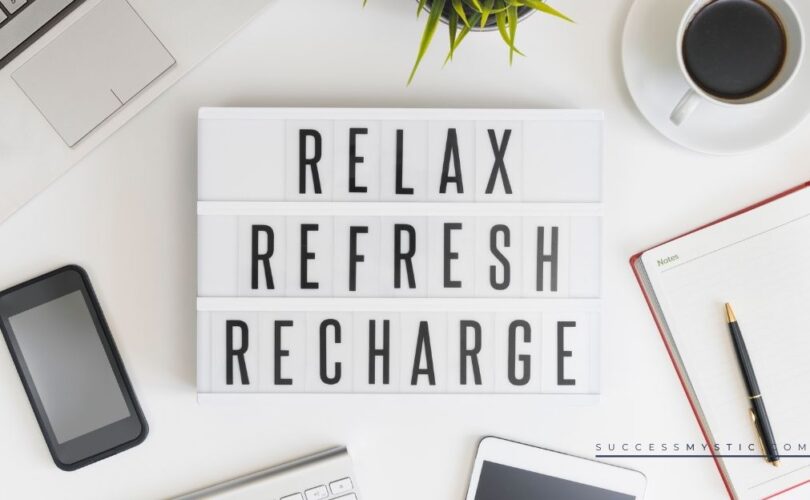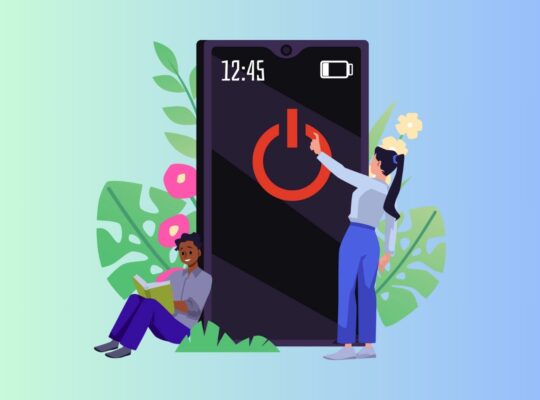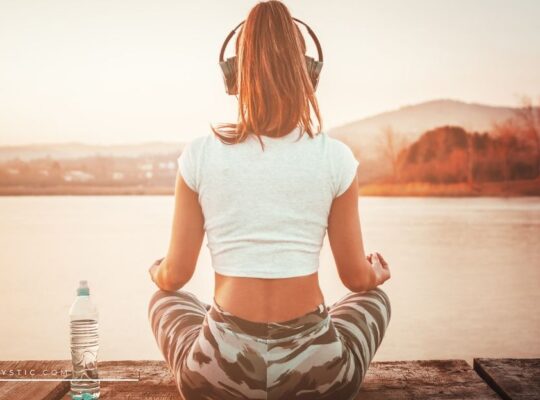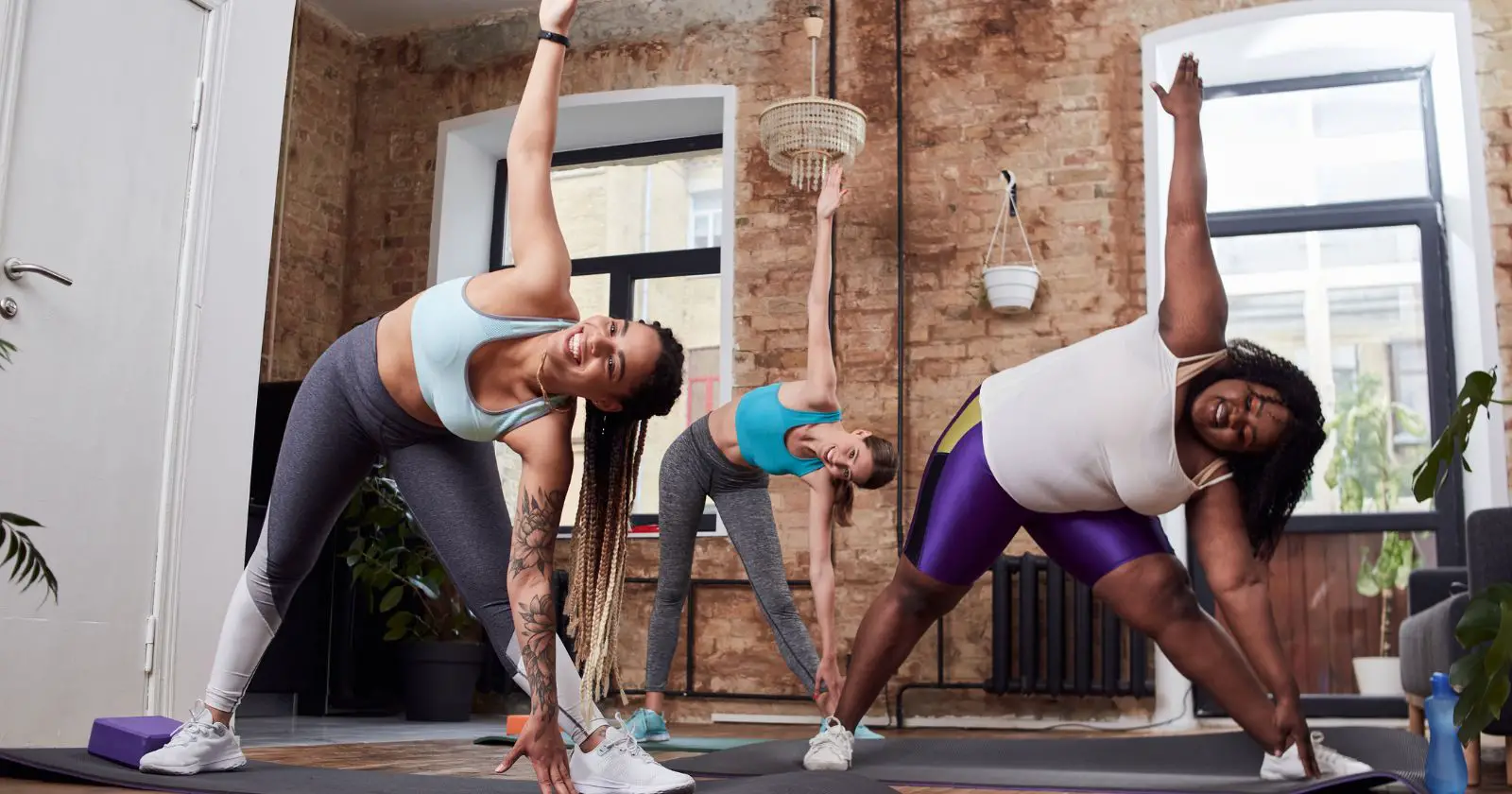Whether it’s in terms of releasing physical tension, getting a load off of your mind, or restoring your emotional health, sometimes all of us need to find ways to relax.
Everyone is different in terms of mind, body, and soul. We all have different stressors and different preferred ways of dealing with stress, so the same relaxation methods might not work for everyone. That’s why we’ve compiled this list of 50 ways for you to unwind.
50 Ways To Relax
1| Shorten Your To-Do List
One way to relax your mind, body and spirit all at once may be to shorten your to-do list.
According to The Stress Management Society, stress is the result of expectations exceeding an individual’s social or personal resources.
Learning to say “no” in the future can help for you to avoid stress in the future but making a decision not to let yourself be overbooked and over-tired can help you relax in the moment.
2| Compare Yourself To A Role Model
Expectations don’t need to come from other people or from our necessary commitments; sometimes we can expect or ask too much of ourselves as well.
Some people find motivation in competition, or in emulating a role model, but if we spend too much time comparing ourselves to other people it can be easy to forget what makes us happy.
3| Cut back on Caffeine
Many of us need a cup of coffee – or four – to start the day, but too much caffeine can make us too high-strung to efficiently face the day.
According to WebMD, drinking more caffeine than you usually do can trigger many of the same symptoms of anxiety. If you have a particularly stressful day that you “prepared” for with too many cups of coffee, it may only make things worse.
According to the same article, people who are already overly anxious may have this reaction even if they have what might be a normal amount of coffee for someone else. Some people also have caffeine sensitivities that can make a little go a long way.
A 2011 Psychology Today article also reports that some people have been able to overcome some symptoms of anxiety by quitting coffee all together. Cutting back or switching to a lower strength brew like tea or “half-caff” coffee might be enough.
4| Try Chamomile
While too much caffeine from sources like coffee and tea can leave you wound up, many people find caffeine-free teas to be relaxing.
While this is true of decaffeinated black and green teas, it is even more true of herbal teas, which are naturally caffeine-free.
Real “tea” — black and green tea – is made from leaves of tea plants, herbal teas are made from a variety of plants.
According to Llewellyn’s Herbal Almanac, chamomile tea in particular has a calming effect on the nerves. Many people use this tea to fall asleep, but many people also use it to calm down after a busy day. The Herbal Almanac also recommends making a soothing balm out of chamomile, lavender, and almond oil. This balm can be massaged into aching muscles to relax your body as well as your mind.
5| Get Better Sleep
On the topics of sleep, many people report feeling mores stressed when the don’t get enough quality sleep, according to the American Psychological association. This can lead into what the APA calls the “Sleep-Stress Cycle”: Too much stress can make it hard to get a good night’s sleep, and not getting a good night’s sleep can contribute to stress.
So, getting more sleep might cut back on your stress levels but you might need to follow some of the other hints in this article to reduce stress enough to get more sleep.
6| Spend Time In The Dark
Even if you can’t fall asleep, don’t use that as an excuse to get more work done, play on the computer, or even stay up with a book if you want your stress levels to go down.
A 2018 Psychology Today article by Dr. Mithu Storoni points out that darkness helps to trigger the body to create melatonin. This chemical helps us fall asleep, but it also plays a role in how our bodies and minds deal with stress.
While reading at night may be relaxing, it isn’t allowing the body to make as much melatonin as it should which is actually making it harder for you to fall asleep, as well as keeping you more wound up during the day.
7| Escape Into A Story
Reading when you can’t sleep might not help you to relax as much as you might think but reading before you try to fall asleep – or any other time of day – might help, provided you are reading for pleasure.
“Escapism” in a literary context is often used to refer to people’s tendency to read books, especially fiction, as a way of “escaping” from their problems. Escaping from your problems isn’t good if you spend too much time ignoring them and not enough time fixing them but losing yourself in a book, or even a movie or TV show, can be a good way to give your brain a break every now and then.
8 Play A Videogame
The term “escapism” may have originated in literature, but it’s now being applied to videogames. A 2018 article by The Independent reported that over half of gamers who responded to a poll said that they play videogames as a way of relieving stress.
If you aren’t into videogames, you don’t need an expensive console to reap the relaxation benefits. Puzzle games were rated one of the best genres for relaxation and these simple games can be downloaded, often for free, on mobile devices or played in a browser.
9 Listen To Music Or White Noise
If reading isn’t your thing, or you want to relax without looking at a screen – a good idea if it’s right before bed, anyway – music and white noise can also have a calming effect.
A 2013 article published by the American Psychological Association detailed a study in which premature babies were seen to have signs of lower stress levels – lower heart rates, &c. — when they were exposed to music or white noise. You might think that this might not work for you; you are not a premature baby; you have a highly developed mind. That may be true, but the researchers conducting the study found that the white noise and music also had a calming effect on the parents of the premature babies.
10| Play An Instrument
Listening to music can help you relax, but so can making music, according to an article by WebMD.
You don’t have to be good at playing, or even know how the instrument works, as long as you’re making music in a stress-free environment.
According to the article, playing an instrument lets your brain know that you’re not in danger, reversing the symptoms of stress which come from your brain thinking that it’s in danger.
11| Try ASMR
If you want something a little different from white noise or music, try Autonomous Sensory Meridian Response, or ASMR for short.
ASMR videos are a very popular on streaming sites like YouTube right now. The videos feature some quiet sound like whispering or gentle tapping that help some people to fall asleep or just feel more relaxed.
If that description sounds nightmarish to you maybe ASMR isn’t for you. Be aware, however, that there are many different ways of creating the sounds, so it may just take some trial and error to find what’s right for you.
There’s not a lot of scientific research on ASMR for relaxation yet, but there’s a lot of anecdotal evidence and strong believers. Articles have even been written about it in The Guardian, The New Yorker, The Washington Post, and The Atlantic.
12| Take A Nap
If you didn’t get a good night’s sleep, that doesn’t mean that all hope is lost. According to a 2015 article published in The Huffington Post, getting a nap during the day after a poor night’s sleep can do you wonders.
Not only does a nap give the mind and body the rest that it may have missed out on, it also helps the body catch up on making feel-good chemicals that it makes while you sleep.
13| Try Aroma Therapy
Chamomile isn’t the only plant that can help to soothe your mind.
Some smells may be able to temporarily erase the stress of the day. A 2017 Huffington Post article by Dr. Marlynn Wei recommends combatting stress with essential oils made from Lavender, Lemon, Bergamot, Ylang Ylang, Clary Sage, and Jasmine.
While essential oils are now popular enough to be available from many big-box stores, the staff at natural wellness stores or pharmacies may be more helpful.
14| Warm Up
Do you ever take a hot shower to relax after a hard day? Well there may actually be some science to back that up. A 2017 Psychology Today article by the same Dr. Mithu Storoni who reminded us that darkness helps to calm us even when we aren’t sleeping, wrote about studies conducted over the last few years that have found that warming our bodies may help to warm out hearts.
This warmth can come from taking a hot bath or shower, holding someone you love, or even holding a cup of coffee, according to the article. According to a WebMD, heat can also help to relax tense muscles or joints, so a hot shower might be able to relax your body as well as your mind.
15| Cool Down
Ice might not feel as relaxing as heat but according to Men’s Journal, it actually does a better job of relaxing muscles and speeding up recover.
WebMD adds that alternating between hot and cold will relax the sore area and encourage blood flow to heal the ache more quickly.
16| Get Close To Someone
The 2017 Psychology Today article cited above also mentioned that test subjects in one experiment were showed fewer signs of stress over anticipated pain while holding someone’s hand, especially the hand of a loved one or close friend.
When we’re physically close to someone, especially someone important to us, our bodies produce chemicals that can help calm us down and even fall asleep faster, according to WebMD.
17| Stay Close To Someone
Relationships can help us to be happy and emotionally healthy people, but they can also introduce their own stresses. According to a 2013 article by Dr. Suzan Heitler, one of the greatest causes of stress in a relationship comes from concerns over that relationships future.
If you are early on in your relationship, be sure to talk to your partner to make sure that you both have the same expectations and desires for the relationship. If your relationship is already more advanced than that, be sure that you and your partner are being faithful to each other, and that both of you know it.
Reminding yourselves that you are in a happy relationship can be relaxing on its own, but it can also help to take one more burden off of your mind.
18| Take Care Of A Pet
Affection doesn’t have to be exchanged between people to help you to relax.
According to a 2017 article in Time Magazine, studies have shown that people who own pets tend to have lower stress levels, as well as lower blood pressure and other physical health benefits.
If you don’t have a pet already, think twice about getting one, as the financial responsibilities that come with a pet may increase your overall stress
19| Get A Massage
Another familiar way to relax the mind and body is through massage, which the Mayo Clinic says can help to reduce pain from muscle strains and minor injuries as well as symptoms of anxiety, among other conditions.
While a massage from someone close to you might help to put your mind at ease, you may need more practiced hands to ease your muscles. There are many different kinds of massage that are good for different things, so if you have a particular issue in mind be sure you are getting the appropriate massage.
By the way, many people find that massages using essential oils are even more relaxing, both to the mind and the body. If you are getting a massage at home, be sure that you have oils specifically for massage or that your essential oils have been properly diluted, as undiluted essential oils can cause skin reactions.
20| Have A Drink Or Two – But No More
It’s fine – maybe even good for you – to relax at the end of a hard day with a drink, maybe even two, but certainly not four.
A 2012 Psychology Today article by Dr. Adi Jaffe reports that studies have found that people who engage in moderate alcohol consumption have healthier stress levels than those who don’t drink at all, but that people who drink heavily often have very bad stress levels.
Much of our bodies are run by chemicals that, among other things, control our mood. Drugs, prescription, legal or otherwise, that we take change the chemical balance of our bodies in some way. Because a drink can help us to relax every now and again, some of us can fall into the trap of feeling that three drinks will make us three times as relaxed.
The relaxation benefits of alcohol have a law of diminishing returns and once you pass it, it stops helping you to relax and starts to leave you stressed out and wanting another drink.
21| Quit Smoking
An interesting case of drugs that some of us use to relax is nicotine. This common drug found in tobacco products helps us to relax mentally – for a very short time – but has the opposite effect on our bodies.
In our end, the tensing effect that nicotine has on our bodies is quantifiably more significant – and longer lasting — than the calming effect that it has on our minds.
22| Have Some Dark Chocolate
One mood enhancing concoction that you don’t need to be afraid of is dark chocolate. Dark chocolate has been making people feel better for ages, but it lacked scientific back-up until fairly recently.
A 2009 article by WebMD reported on research that showed that individuals who regularly ate dark an average-sized bar of dark chocolate each day for two weeks had lower levels of key stress hormones in their bodies. Eating one piece of dark chocolate may help you relax in the moment but eating one piece per day might have you feeling more relaxed all the time.
The study specifically dealt with dark chocolate, which is better for you in many ways than milk chocolate. Also, be aware that some “chocolates” are really just made with chocolate. These candies can have less of the good stuff and more additives like unhealthy oils and extra sugars, so read the ingredients before you buy chocolates for your health.
23| Make Some Art
Art therapy is a way of relieving stress and expressing emotion through art. Creating are involves using parts of the brain that many people don’t use in their everyday tasks.
Art therapy is often used by licensed art therapists to help patients overcome feelings from recent trauma, but, according to a 2014 article by The Guardian, anyone can use art therapy to overcome smaller every-day stresses.
24| “Ground” Yourself
One tactic for relaxing mentioned as part of a process in a 2013 article by Dr. Will Meek published in Psychology Today, is grounding.
In grounding, you pay attention to your environment and how you are physically contacting it, such as your feet on the floor. For some people this is a process on its own, but it can also be the first step of mindfulness or meditation exercises.
25| Go To A Spa Or Wellness Retreat
Another step toward leading a more mindful and meditative life can be to learn what relaxes you. Many cities have spas where you can go for a day to experience things like aroma therapy or massage. Many fitness centers, public gyms, or universities will have classes on relaxing activities like yoga.
If you have the time and the means, a 2018 report by Bloomberg announced that the “wellness tourism” industry is booming and taking a vacation to a wellness resort can help to reset your stress levels and teach you some lasting tools.
26| Get A Change Of Scenery
According to Lifehack.com, you don’t need to spend a vacation, or even a day off away from your problems to relax a little, any change of scenery will do.
Even if you’re still working, bring it into the next room and see if you don’t feel a little better.
27| Change Your Perspective
You may be able to downplay your stress and relax a little while staying productive by changing your perspective on your stress.
Dr. Barbara Markway wrote in a 2013 Psychology Today article that “thanking our minds” for stress helps it to go away. This tactic involves reminding our stressful mind that we are in control of the situation.
28| Focus On The Big Picture
Another Psychology Today article, written in 2015 by Dr. Melanie Greenberg similarly reminds us to focus on the big picture when we get overwhelmed. Often when we feel out of control it is because smaller aspects of a bigger process aren’t going as planned, not because the bigger process is actually going off of the rails.
Consider being grateful for the situations that causes you stress, as most stressful situations are productive. For example, instead of thinking about how stressful your work is, think about how good it is that you have a job.
29| Take Advantage of Brief Moments
A 2017 article published in The Huffington Post suggests that even when we cannot make room for space between tasks we can sometimes make room for space between thoughts.
Instead of trying to fill every moment of the day, try to take advantage of those few minutes before a meeting, or after phone call.
30| Think Of Something Calming
Those few moments may be all it takes to become more relaxed.
According to the Mayo Clinic, imagining calming visual images is enough to help some people to relax. It only takes a moment and you can do it anywhere.
31| Go To A “Work-Free Zone”
We live in a competitive world full of mobile devices that remind us how busy we are. Trying to leave our work in the work place and silencing notifications when we get home can help us to recognize certain areas of our lives as areas of healthy stress and other areas as areas of relaxation.
If you have to have a home office or you are a younger reader with only your bedroom to call your own, consider having a space within the house or even within your room where you don’t do any work. Your bed should do nicely. Psychologists even say that keeping your bed as a sleep- only zone will help you to fall asleep faster.
32| Turn Off App Notifications
Stress doesn’t only come from work. Our computers and mobile devices are windows to the world that can let us know when one of our family member is arguing with us over politics from the other side of the country or when there has been a disaster on the other side of the world.
Staying informed and staying engaged are important things but a constant flow of information can leave us exhausted, which is another good reason to turn off some of the notifications on your mobile.
The idea isn’t to hide from the world. You should still read the news and you can still spend time on social media but make sure that you are engaging with that information rather than that information engaging with you.
33| Practice Yoga
Traditionally, yoga comprised of the physical practice and breathing exercises – as well as other elements of a more religious or philosophical nature. These days many people practice the physical exercises that we usually think of when we come across the word “yoga” to reap its physical benefits, and many people practice the breathing aspect of yoga to reap its mental health benefits. The greatest benefit is found when both of these aspects of yoga are practiced together.
A meta-analysis published in The Journal of Alternative and Complimentary Medicine in 2009 found that a regimen including mindful breathing and yoga practice helped to reduce stress in participants.
34| Mindful Breathing
Mindful breathing helps to control stress by allowing us to control an aspect of our biology that is often controlled by the subconscious. The physical practice of yoga helps our mental health by focusing our attention on our bodies rather than what is going on around us. It can also help to work out those knots that our bodies can accumulate during a stressful day.
35| Meditation
Meditation and mindful breathing are not the same thing, though they can be related, and, like mindful breathing, meditation can be practiced in a secular setting for mental health benefits that are increasingly being recognized by modern science.
Dr. Robert Ornstein wrote in his 2008 book “Meditation and Modern Psychology” that the “mantras” — words repeated to one’s self or out loud, often in a low hum – that are often associated with meditation can have religious meaning to religious practitioners but that they serve the practical purpose of “turning off awareness.”
“Turning off awareness” is a good way to temporarily escape from the day and reset your stress levels. In mindful breathing it is done by focusing on the breath but in meditation it is often done with a mantra. Repeating a mantra helps to keep the mind focused on the repetition of the word rather than on the stresses of the day. Your mantra could be one of the classic mantras associated with religious meditation, or it could be any other arbitrary or made up word.
36| Do A “Body Scan”
Some types of meditation can also turn on awareness. One such type of meditation is called a “body scan.”
In a body scan you lie down comfortably on a soft surface and take time to note how each part of your body feels. It’s simple enough to try on your own, but there are guided meditations online if you would like some help.
According to a 2007 article by National Public Radio, many people find the scans to be one of the most relaxing forms of meditation. Many people even fall asleep during body scan meditations.
Some people also find that body scans are a good way of finding stress-points or knots in muscles that they didn’t realize were there before but that they are now easier to address.
37| Progressive Muscle Relaxation
A 2014 article by Lifehack recommends “Progressive Muscle Relaxation,” a practice similar to body scanning, but a little more physical.
Progressive muscle relaxation involves taking account of how an area of your body feels, tensing the muscles in that area, relaxing them, and then noting the difference.
This can be relaxing in itself, but it can also help you to identify areas of tension that you might not have noticed and can also help you to notice and address areas of tension quicker in the future.
38| Learn About Another Culture – Or Your Own
If you’re still skeptical of meditation because of its foreign religious connotations, consider looking into your own religion for a meditative tradition. Many “western religions” including Catholicism and Judaism include meditative elements that you may not be aware of but that will be beneficial to your mental and perhaps your spiritual health.
If you aren’t religiously aligned or don’t mind dabbling in the thought practices of another group of people, consider looking into the context in which traditions like yoga and meditation were established. Buddhism in particular comes with a rich philosophical tradition that was so heavily based on rolling with the punches and accepting life as it is that it literally gave us the word “Zen”.
39| Write Something
What meditation is really about is activating different parts of your brain than those that we can easily tire through constant use.
According to a 2016 article in Forbes magazine, many writers believe, and some researchers agree that hand-writing, especially with a pen, uses areas of the brain that many of us don’t use very often anymore. Some people can find this very relaxing, whether you’re writing a journal, a play, a novel, or whatever come into your head.
40| Write Anything
Writing whatever comes into your head is called “stream of consciousness” in literary circles. It was popularized in the fifties and sixties when writers supposedly inserted rolls of paper into their typewriters so that they wouldn’t have to stop writing to change sheets of paper.
Writing three pages of stream of consciousness in the morning as a form of therapy was introduced in the “Morning Pages” movement of Julia Cameron, and according to a 2014 article in The Guardian, it helps some people to feel less anxious. While there’s not a great deal of research behind it, it might also help if you do it later in the day when you’re feeling stressed as opposed to as a preventative measure in the morning.
41| Keep A Journal
Writing a journal, even on a computer, may also help you to recover from a stressful day or event.
Dr. James Pennebaker wrote in his 2003 book “Writing to Heal” that taking an event and our feelings about it and expressing them in language makes them easier for us to understand and process.
42| Focus On One Task
Breathing can be done mindfully, but so can anything else. Dr. Judith Tutin told WebMD in an interview that people can relax by focusing on any one activity for five minutes.
These days we’re often multi-tasking, which allows stress to come in from multiple directions at once. Intently focusing on one activity reduces the number of sources that stress can come from and may even renew your interest in the activity that you are focused on.
43| Be Grateful
Some Jewish traditions suggest that their adherents “bless a thousand things each day” (“bless” read “be grateful for” and “one thousand” read “many”).
Long ago Jewish thinkers knew that gratitude for what you have helped you to be more grateful and less worried about what you need or want. It has taken until fairly recently for scientists to suggest that taking the time to be grateful for things helps us to become more positive people. Dr. Alex Korb wrote in Psychology Today in 2012 that people who keep a journal of their gratitude had decreased symptoms of anxiety and depression.
Christian tradition also reminds us to be grateful for what we have because it takes little to survive and only slightly more to be happy.
44| Take A Day Off
Most religious traditions also recommend taking a day off each week. While this is often framed in terms of respecting that in the creation story God took one day off after taking six days to create the universe, it should also remind us that – in the words of the old Blues song – “every creature needs some rest.”
In some conservative religious traditions taking a day off means that you don’t shop, cook, or even turn on lights. If you’re taking a day off for your health more than for your god, however, just put off things that you have to do in favor of things that you want to do even if they require work, like gardening.
45| Get Some Fresh Air
A study conducted in 2007 and later published in The Journal of Social Issues tested individuals’ moods before and after they spent time in a city and in a forest. The study found that those that spent time in a forest had better moods than those in the city.
If you work or live in the city but know that you prefer other environments, your mental health should be a pretty good reason to make it out to the country or woods, or even just a nature park, as often as possible.
Even if you enjoy the city, sometimes it’s stresses – social and environmental – can get to you. Consider taking a trip to some more fresh air the next time that you get the opportunity. It may help enhance your mood, and the city will still be there when you get back.
46| Lift Weights
Yoga and running aren’t the only exercises that are good for your mind. A 2009 article published in the journal Neuropsychobiology found that strength training – muscle building exercises like lifting weights – can also help to reduce symptoms of anxiety and depression and improve overall cognitive function.
Some experts think that strength training exercises – and exercises in general – have these benefits because they increase the volume of oxygen in your blood and the circulation of blood in your body – including to your brain.
47| Take A Low-Dose Pain Killer
Working out has physical and mental health benefits but it may also leave you in need of relaxation.
Whether it’s muscle pain from a long day at work or from an intense workout session, Men’s Journal recommends using a low-dose over-the-counter pain pill. These can also help with headaches.
Be sure to follow the dosing instructions on the bottle and don’t get to used to taking them.
48| Go For A Run
Fresh air is great, but any time outside is important. A 2012 study of recreational runners in urban Budapest found that the runners’ moods were improved after their run even though they were running in the city as opposed to through a forest like the individuals in the above study.
The runners in this study were already recreational runners rather than random participants, so it could be that running improved their mood not because they were spending time outside but because they enjoyed running. In that case, you might as well give running a shot. Maybe it’s your stress relief too.
49| Don’t Give Up On Relaxation
If none of the tips so far have worked for you, keep trying them. A 2015 article published in Lifehack reminds us that sometimes our minds and bodies can’t just calm down, they need to learn to be calm.
If you’re used to being busy, you might not be able to just sit down and feel your feet on the floor, at least not for very long. Just like anything else, it might take practice. Knowing that you’re working toward learning to relax might be a bit relaxing in itself.
50| Talk To Someone
If you really can’t relax, if nothing in this article has worked for you and you feel like you’ll always be stressed, you might need more help.
Consider talking to a health care provider about anxiety.
Many people avoid talking to a doctor about anxiety because they don’t want to be put on medication, but there are other treatments available.
Talking to a doctor about anxiety can be anything but relaxing but knowing your options can help.
Final Thoughts
All of us need to relax sometimes, and all of us have different ways of relaxing. Some of us need to relax because we’re too busy or because our minds are too busy. Hopefully one of the above suggestions will help you to get away from your stress for a while.
Stay relaxed and take care!







